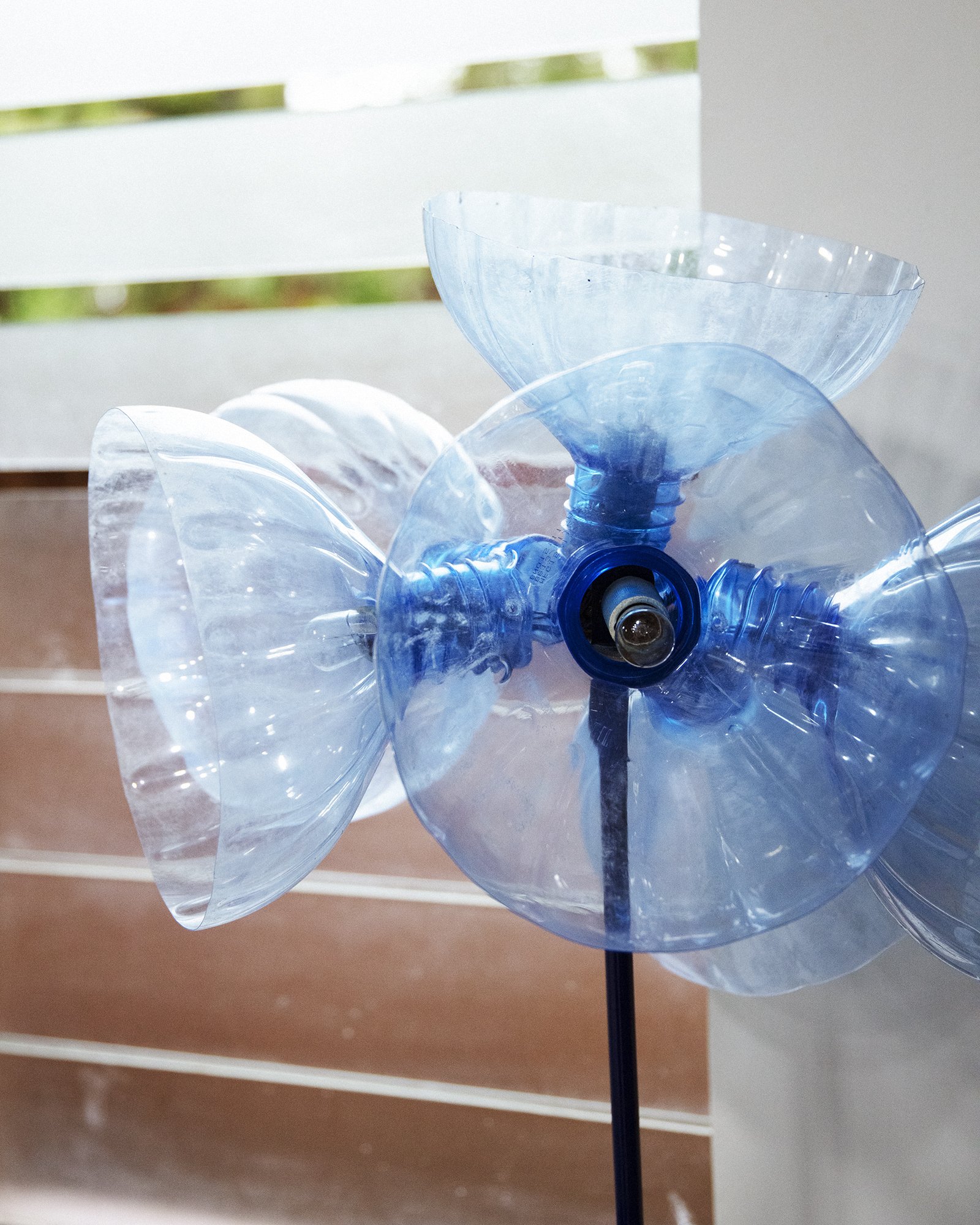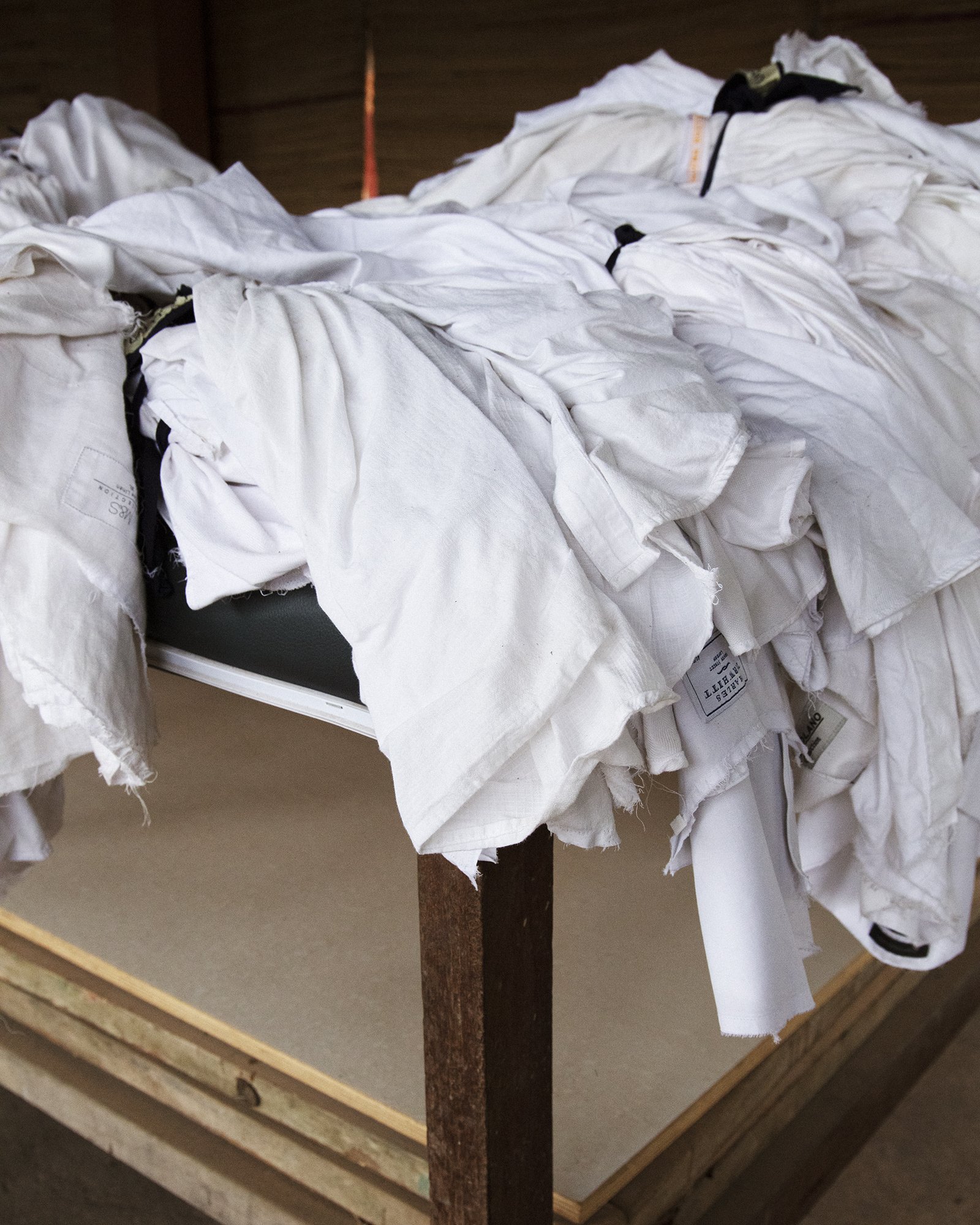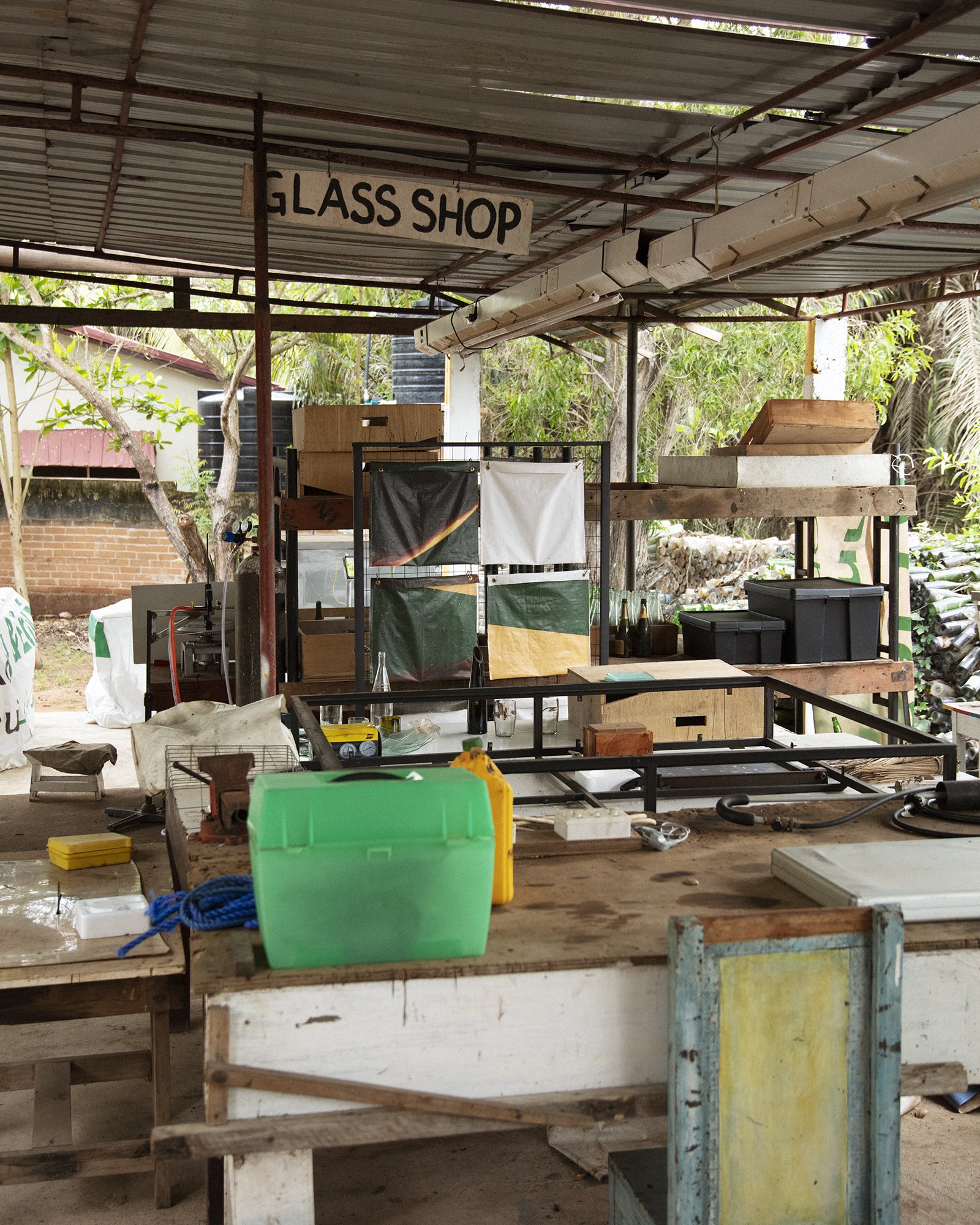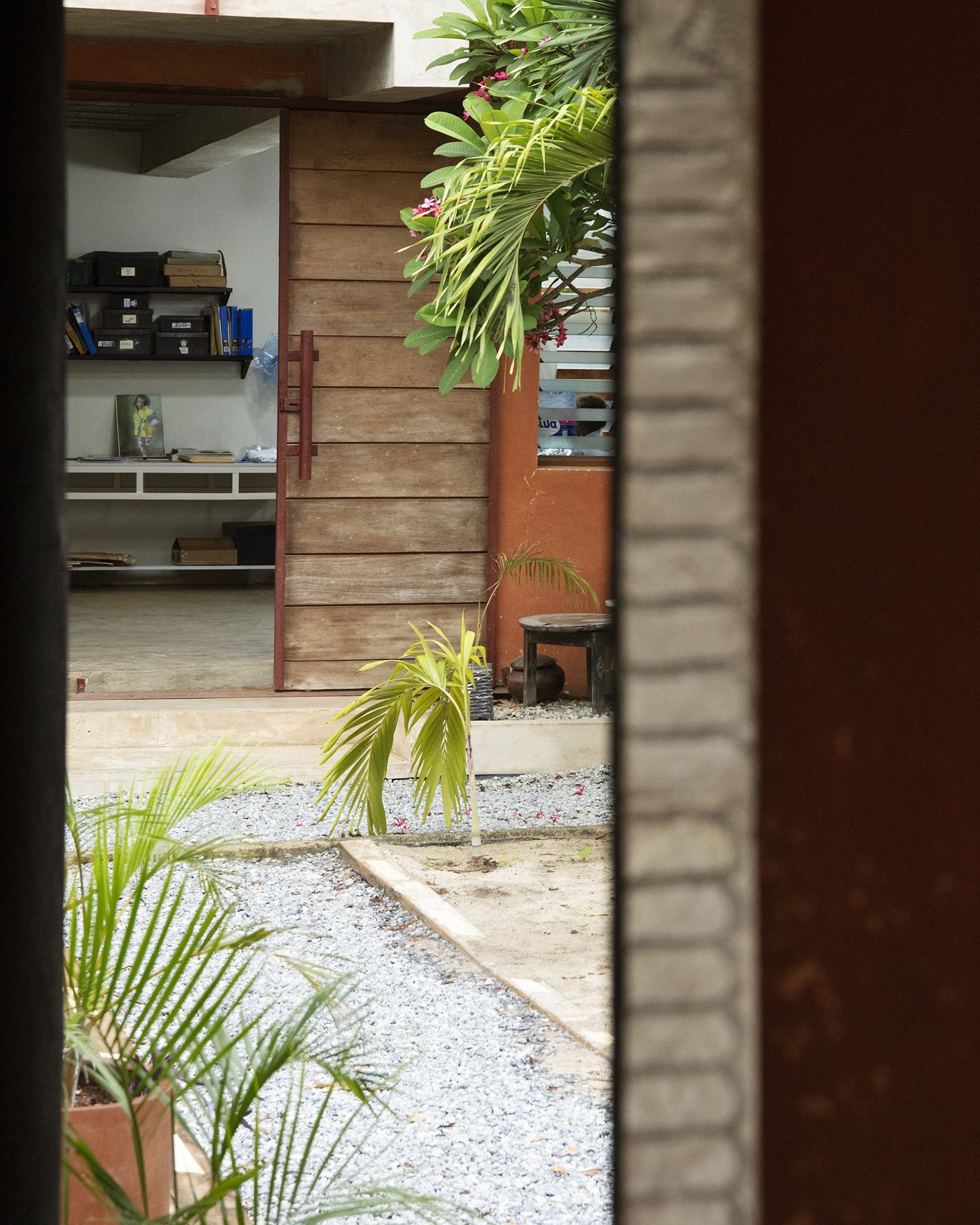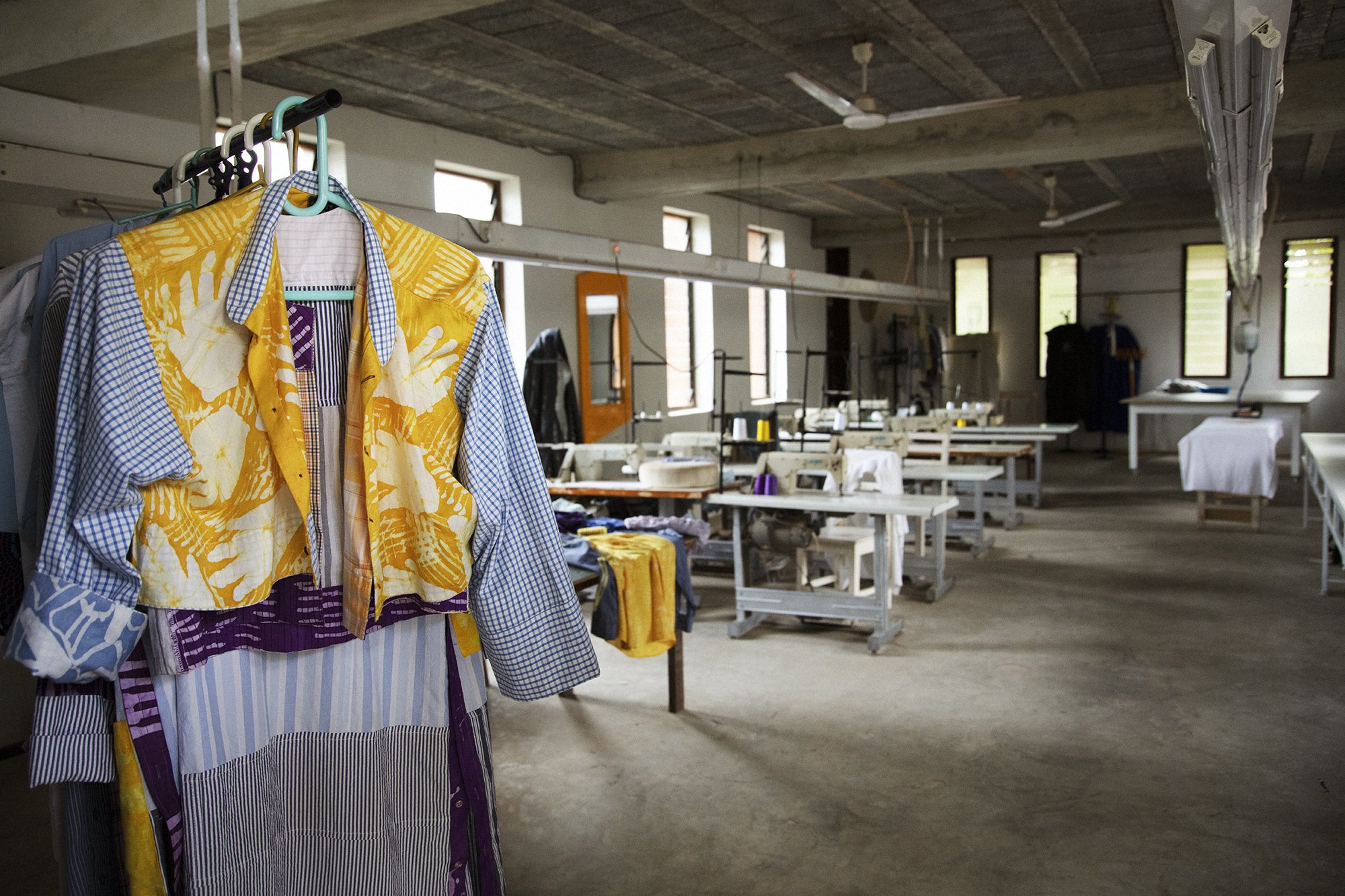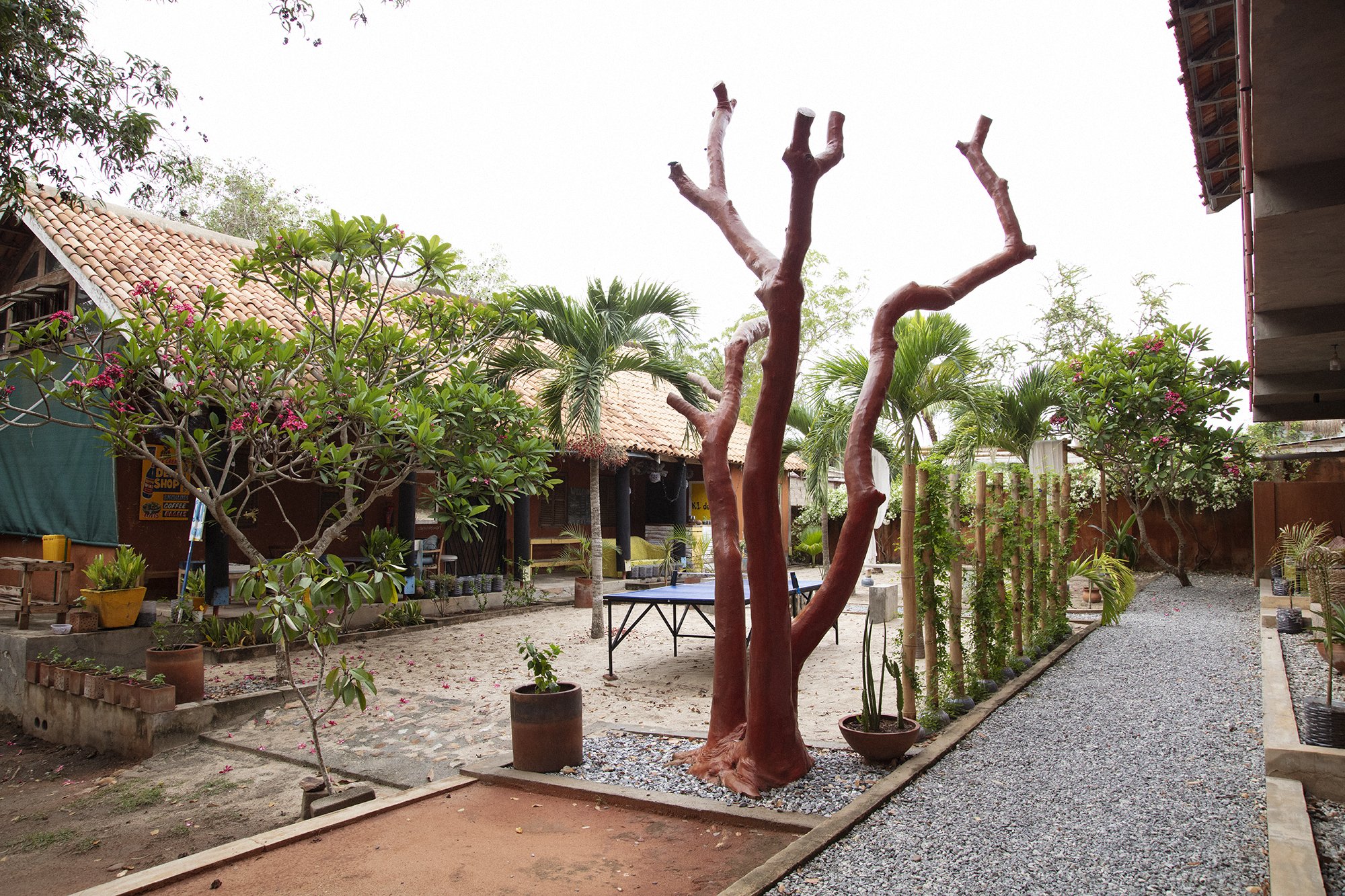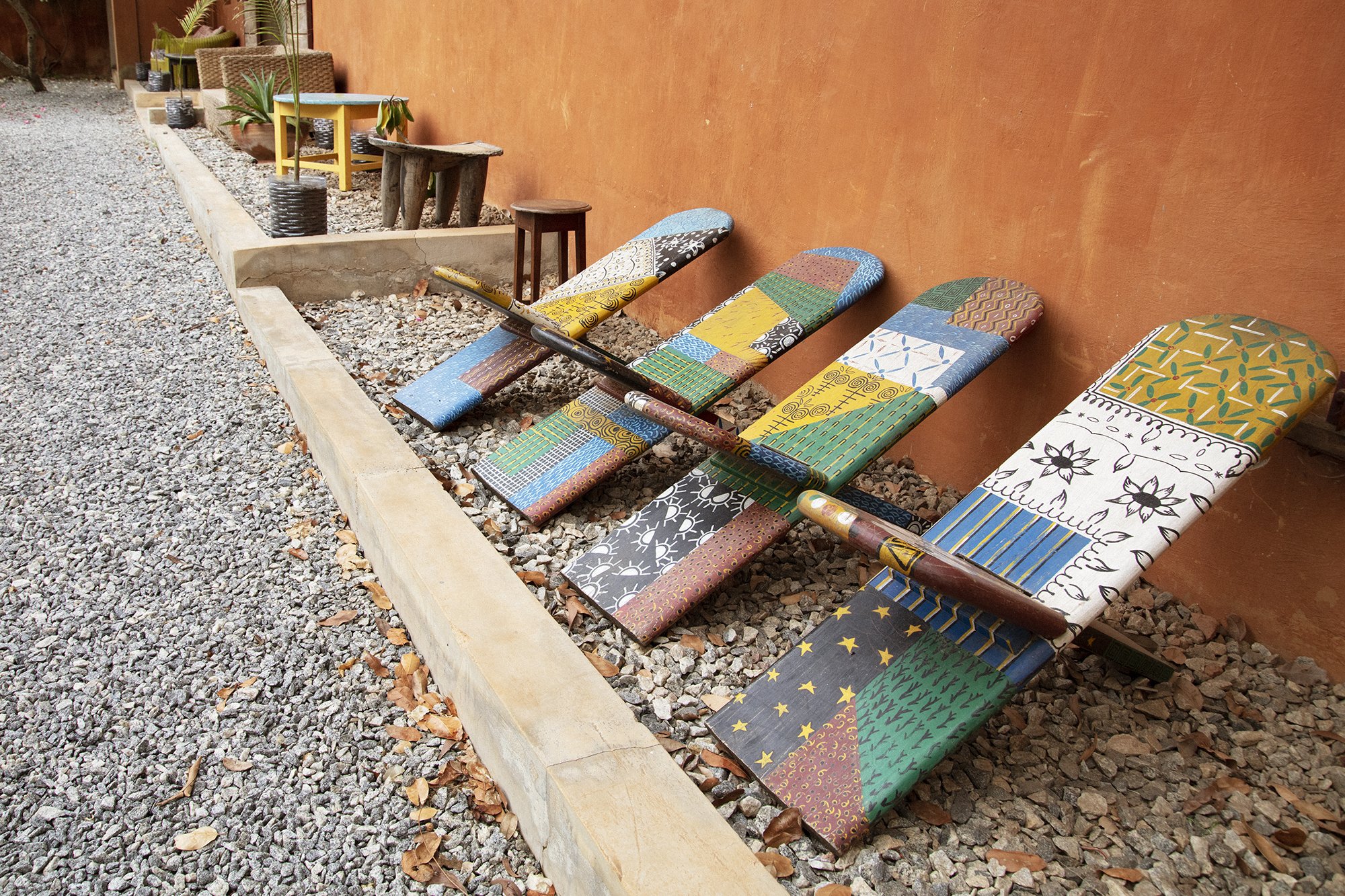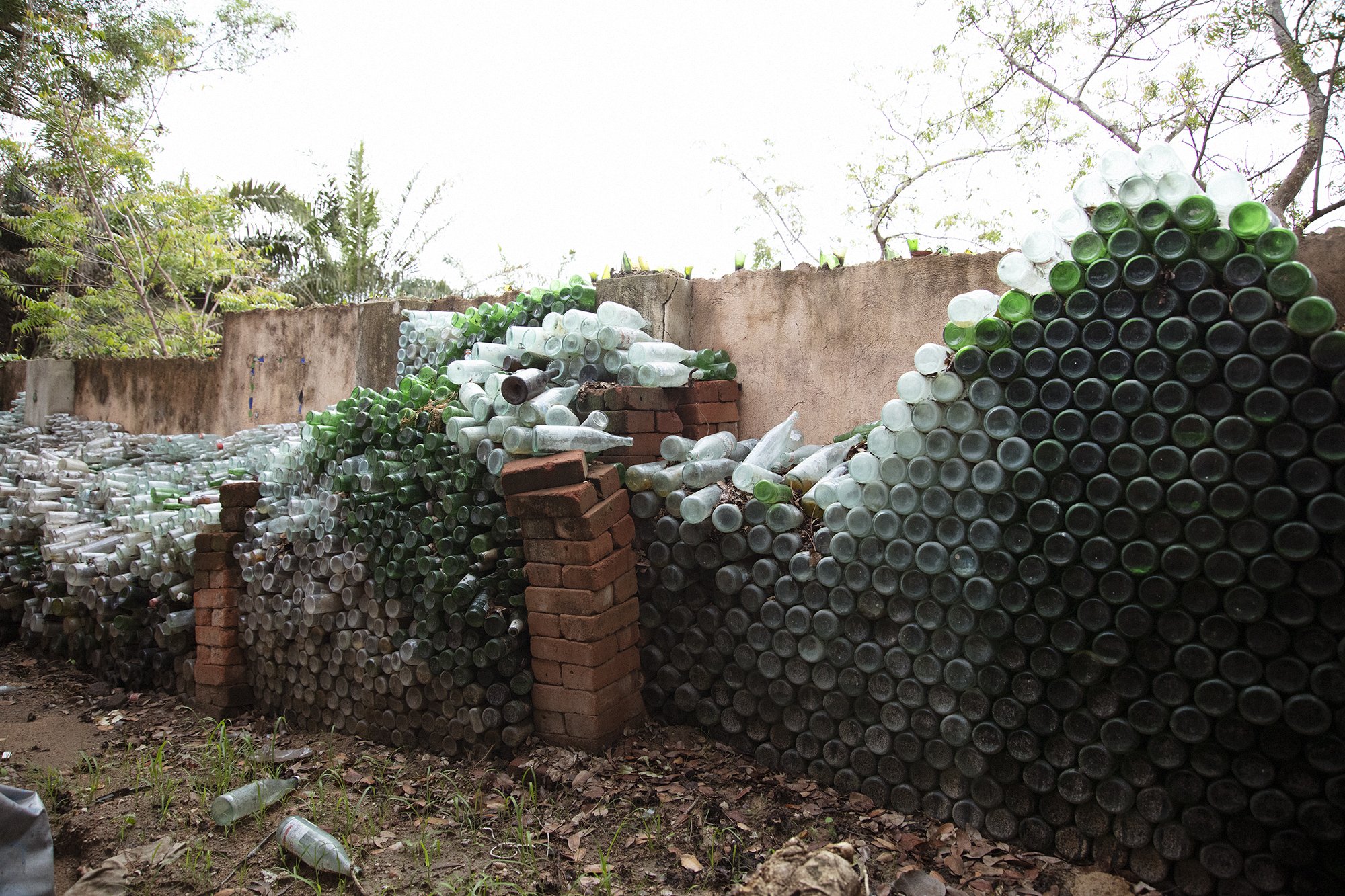The power of resourceful design at Kokrobritey Institute
with Renée C. Neblett
Meeting Renée C. Neblett was like meeting a wise and respected village Auntie who draws you in to sit and listen to stories. When I heard about the Kokrobritey Institute in Ghana, I knew I had to visit and talk to its creator in person. So I did. I was immediately captivated by the place. Kokrobritey is about an hour West of Ghana’s capital city of Accra. It’s a popular outside-of-the-city beach destination which sparked Renée, the founder of the Institute’s passion back in the 80’s.
“I was completely overwhelmed. Not by the physical beauty alone but by people who had intelligence beyond anything I knew.” - Renée C. Neblett
Kokrobritey Institute is nestled deep in the town. When I arrive for the first time, I walk into the residential side of the compound. I feel at peace in a courtyard, the heart of two low blocks of apartments with doors facing toward the centre. It feels intimate. There is a long walk that leads to the ocean. I follow it. I stand and stare at the water for a long time. Working men are constructing a low building not too far from this ocean opening. I recognise Renée, as she walks down to them, clarifying instructions she had seemingly given earlier. It is the way of Accra too, one must repeat themselves and insist on getting things just right. She’s clearly local.
I come back the next day, and this time I walk into the workspace of the compound. It is immediately obvious that what most disregard is not seen as waste here. Piles of plastic and glass bottles line the walls, and all sorts of bric-a-brac lay around, next to large work tables, topped with tools. Some already transformed into beautiful utilities, like lampshades, vases and other ornaments. Two larger buildings face each other, again centred by a lush courtyard. When we walk into the main office, I catch a glimpse of the tie-dye clothes I had spotted Renée wearing online on a rack, the Wote Collection. It is all a stunning green space. Even on a grey day in Accra, it is an oasis for the curious mind, designed by the late Ghanaian architect Alero Olympio.
“I’m trying to look at waste as material for product development. Exploring how resourceful design can transform waste into something that is not just functional but also aesthetically pleasing,” Renée explains to me later on.
The institute has three main goals. Firstly, to celebrate the African intelligence Renée encountered in the people and spaces when she first arrived in Accra. Secondly, to bring to life what Dr Kwame Nkrumah (Pan-Africanist and first president of Ghana) described as African potential. Thirdly, to turn what is considered waste into resource, design, and innovation through education that reconnects people to the culture and knowledge of the land. This is what the modern world calls sustainability, but Renée recognises it as the original way of life in Kokrobrite and many parts of Africa.
“Everybody, every culture started out with a relationship with nature and those who have held on to it the longest have the freshest voice. We need to get that on the table!” she states enthusiastically.
The Institute wants to inspire future generations to return to their tradition of sustainability in innovative ways. It offers programs in fashion/textile, household product design, glass recycling, welding, woodcraft, and jewellery making, just to name a few. Currently, there is a Digital Design workshop in motion which introduces students to the digital creative space. From study-abroad students to entrepreneurs and creatives, it has hosted groups and individuals hungry for positive change in an environment connected to tradition. Auntie Renée, as she is affectionately called, also works with the people of Kokrobrite village, helping to provide training and creating jobs.
But how did a Boston-born African-American go from protesting under the Civil Rights Movement of the ’60s-’70s to creating a sustainable development space near Accra, Ghana?
Renée left the US at the height of the Civil Rights movement, eager to live free from violent and systemic anti-Black racism brought on by White Supremacy in the United States. She moved to Germany where she had family. By leaving America for a less hostile country, Renée had a fresh start somewhere that embraces the expansive concepts of culture and ethnicity." This came with a key lesson, she recounts:
“In Germany, my physical presence suggested that I was coming from a place worth knowing and unlike America, everyone wasn’t just Black and White. They were German or French or Igbos or Akan.”
Renee was lucky to have landed in a community of people from diverse backgrounds who embraces her. Eventually, she left Germany for Accra and fell in love with Kokrobrite: “I came to this village in 1989. This place was paradise” she says.
Along her journey of self-discovery, a desire grew to bring other African Americans into the beauty and knowledge she was acquiring about the worlds she was connecting with. When she fell in love with Kokrobrite, she started a pilot programme (with community support) to bring kids from America to Ghana. It was a sort of study abroad programme, but most importantly, she was eager to show young African-Americans that “they came from someplace worth remembering and to lift the veil on the myth of their inferiority learned in America.”
Although she does not see the Institute as a form of protest directly linked to her early days with the Civil Rights movement, she acknowledges that “in the end, they are the same thing.
“All those issues are connected: white supremacy, economic system oppression, health systems, food chains, they are all connected!”
Today, the conversation on intersectionality has gained momentum. World issues are all interconnected and tackling them means recognising that and uprooting capitalism and other destructive forces at their core. It is not an easy feat, but if we all grab one root we can uproot oppression together. In many ways, Kokrobritey Institute is part of this uprooting, it is a place of birth to better ways of living. Renée sees the return to indigenous knowledge both in Accra and worldwide as a key measure for change. This leads us back to Dr Kwame Nkrumah and the African potential. He saw what Africa could be if it claimed its identity and space in the world. Nkrumah led the people of Ghana to independence in March 1957. Ghanaians have a culture and tradition based on the deep knowledge of their environment. These traditions have been passed on, but they have lost their “why.” Often people don’t know why things are done the way they are done. Elders will say, this is how it has always been. But, the key to keeping these traditions alive is to explain the why, Renée insists:
“What distinguishes tradition is consciousness and consciousness is education: what am I doing and why am I doing it?” I couldn’t agree more.
Africa as a continent is too often sidelined in global conversations about sustainability. Africa boasts some of the brightest activists, yet remains marginalised. We can all recall the young Ugandan climate activist Vanessa Nakate, who was cut out of a publication photo by the Associated Press after she appeared at a joint press conference in Davos with other prominent climate activists, including Greta Thunberg, Loukina Tille, Luisa Neubauer and Isabelle Axelsson. The Associated Press cropped her and left only four white activists in the image. This re-ignited the conversation about the lack of diversity in the global climate movement. For many Africans, it represented how so often the West believes the continent does not carry solutions for issues as large as climate change. This could not be any further from the truth. Africa carries key solutions, in its people like Vanessa Nakate, and in its environment, culture and traditions.
“It’s irresponsible to allow one cultural perspective to dictate how the world lives.” Renée rightfully states. To her, the real impoverishment of the continent began when colonisation coerced Africans into believing that their way of life was backward:
“Imagine someone has taken your clay pot and given you a plastic bottle to drink out of. It’s an absurdity!” An absurdity we can all recognise in this age of immense plastic pollution.
Renée believes that our collective work today is understanding the why of the cultures that have preserved harmonious living with nature and drawing the intelligence behind their knowledge to form solutions to sustainable living both locally and globally.

